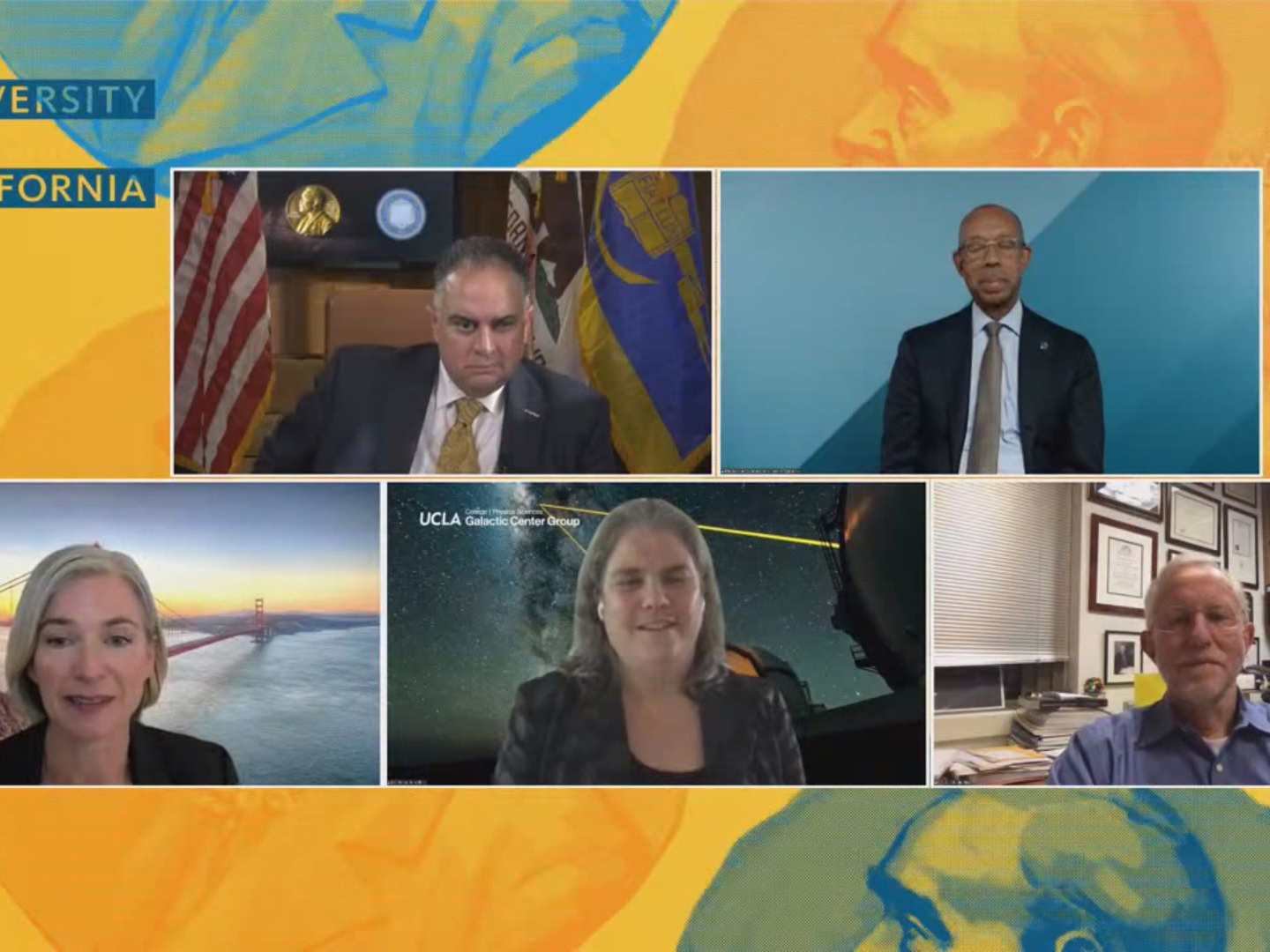
On Thursday, Dec. 3, the University of California (UC) held a virtual discussion titled, “In Conversation: UC’s 2020 Nobel Prize Winners on Changing the World Through Scientific Discovery,” in honor of four individuals who have been recognized by the Nobel Prize committee for their accomplishm
ents in their fields of study. The recipients were Jennifer Doudna, Ph.D. at UC Berkeley, Reinhard Genzel, Ph.D. at UC Berkeley, Andrea Ghez, Ph.D. at UCLA and Charles Rice Ph.D., a graduate from UC Davis. The event ran from 1 p.m to 2 p.m and featured a Q&A with each of the Nobel Prize recipients.
The discussion was introduced by John A. Pérez, the current chair of the board of regents and was moderated by Michael Drake, the president of the UC. Unfortunately, one of the Nobel Prize recipients, Genzel, was unable to attend the event, but he left a message with Pérez expressing his “deepest gratitude” toward the University of California and the Nobel committee for their recognition of his work.
Throughout the discussion, the three recipients who were able to attend the event shared stories about their experiences in their field and on receiving a Nobel Prize. Viewers were welcomed to send in their questions prior to the event, but the Zoom chat was disabled.
Doudna was 1 out of 7 women to win a Nobel Prize in chemistry. She won the Nobel Prize for her work in genome editing, or the altering of genes within living organisms. Her knowledge of genetics even led her to work alongside Rice. Together, they worked toward understanding the influence of RNA on Hepatitis C. When asked for her advice to women seeking a career in the scientific field, she encouraged them to “go for it” and to “follow your passion.” Growing up, she says she was fortunate to have a father who supported her interests in math and science. She advised future scientists to “look for people who will support you.”
Ghez was 1 out of 4 women to win a Nobel Prize in physics for her research on black holes, a project that she has been working on for 25 years. When asked what her advice would be for inspiring scientists, she said, “I encourage young scientists to take the risk” and “to have a project that you really believe in.” In her experience, there were times when she was denied the funds and support for her studies, but she pushed through and found a way to continue the research she was passionate about.
Rice is a virologist who was awarded a Nobel Prize in physiology. He was 1 of 3 recipients who were recognized by the Nobel committee for their discovery and research of Hepatitis C. His work helped others reach an understanding of the virus which, coincidentally, is similar to yellow fever and led him to do some research on that virus as well. Rice stated that “supporting curiosity driven research is so important” and “we need to fund people who still have a passion for discovery.”
Each of these scientists were surprised when they learned that they would be receiving a Nobel Prize in their field, especially since the call announcing their achievement came in the middle of the night. They dedicated their lives to their studies and were honored by the recognition they received from the Nobel committee. While traditionally the Nobel laureates attend a ceremony in Stockholm and Oslo, this year the medals were brought to each recipient. Events, such as Nobel lectures, were open to be streamed by the public. This event was enlightening and hopefully encouraged others to pursue their passions fully.







